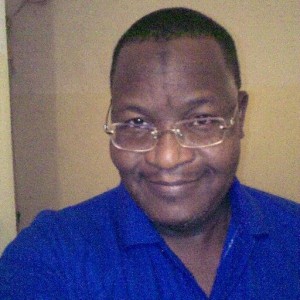Prof. Umaru Danbatta has been appointed as the new Executive Vice Chairman and Chief Executive of the Nigerian Communications Commission (NCC), Nigeria’s telecom regulator. He takes over from Dr. Eugene Juwah, whose tenure expired on July 29, 2015. Juwah failed to get a tenure renewal. Weeks before his replacement, the NCC’s board was sacked.
Danbatta’s appointment was made public on Tuesday in an official statement by President Muhammadu Buhari’s Special Adviser on Media and Publicity, Mr. Femi Adesina. The president’s media manager also announced the appointment of Dr. Emmanuel Ibe Kachikwu as the Group Managing Director of the Nigerian National Petroleum Corporation (NNPC).
Danbatta brings to the NCC years of experience as researcher, teacher and administrator in the ivory tower and the ICT sector. He was one time the Vice President of the Digital Bridge Institute (DBI), International Centre for Advanced Communications Studies, which was established in 2004 by the NCC to build capacity for the Nigerian and African ICT industry. Author and a foremost member of the Council for the Regulation of Engineering in Nigeria (COREN), Prof. Danbatta served as a member of the Implementation Committee of the Northwest University Kano, and the Acting Vice-Chancellor of Kano University of Science & Technology, Wudil.
Profile of Professor Umar Garba Danbatta, PhD
Born in Danbatta Local Government Council of Kano State, Prof. Danbatta obtained his B.Eng, MSc and PhD degrees from the Technical University of Wroclaw in Poland and the University of Manchester Institute of Science and Technology UK respectively. He had served as a lecturer in the Department of Electrical Engineering, Faculty of Technology of Bayero University Kano for 28years, where he taught courses in telecommunication engineering and electronics and held academic positions of Dean of the Faculty and Head of Department at different times. His main administrative responsibilities, in the university, included Deputy and Acting Dean of Students’ Affairs, Administrator of the Works Department and later, Director of the Centre for Information Technology (CIT). He was also chairman to, or member of, over 60 University committees and task forces.
In administrative and other responsibilities outside the university, he has served as chairman or member to over 20 committees, prominent among which was the Chairmanship of the Implementation Committee of Kano State University of Science & Technology and subsequently became its pioneer Deputy and Acting Vice-Chancellor when it took off in 2001. Prof. Danbatta has supervised more than 60 PhD, M.Eng and B.Eng projects in the diverse areas of telecommunications and has also served as external examiner to seven universities and polytechnics and is an assessor, technical reviewer and editorial member to eight research journals.
He is a recipient of 18 distinguished awards and certificates of honour. Prof. Danbatta, who had served two terms of five years as a Member of Council for the Regulation of Engineering in Nigeria (COREN), is also a COREN registered engineer and member of the Nigerian Society of Engineers (NSE). He has to his credit more than 50 articles in journals, conference proceedings and technical reports.
He is also the author of a six-chapter, 167-page book titled Elements of Static Engineering Electromagnetics. He was the Vice President of the Digital Bridge Institute (DBI), International Centre for Advanced Communications Studies, which was established in the year 2004 by the Nigerian Communications Commission (NCC) to build capacity for the Nigerian/African telecom industry in the diverse areas of Information and Communication Technology (ICT). While at DBI he has developed expertise in the following major areas of ICT implementation, policy and regulation:
- Regulation of the Telecommunications Sector of the Nigerian Economy;
- Competition, Interconnection and Price Regulations in a Developing Economy;
- Issues concerning Authorization of Telecommunications Services in a Developing Economy;
- Strategies for ensuring Universal Access and Service to Telecommunications Services;
- Strategies towards Effective Spectrum Management in a Developing Economy;
- Issues on Institutional and Legal Framework for Effective Regulation of Telecommunications Services; and
- New and Emerging Technologies and Impact on Regulation of the Telecommunications Sector of a Developing Economy.
































